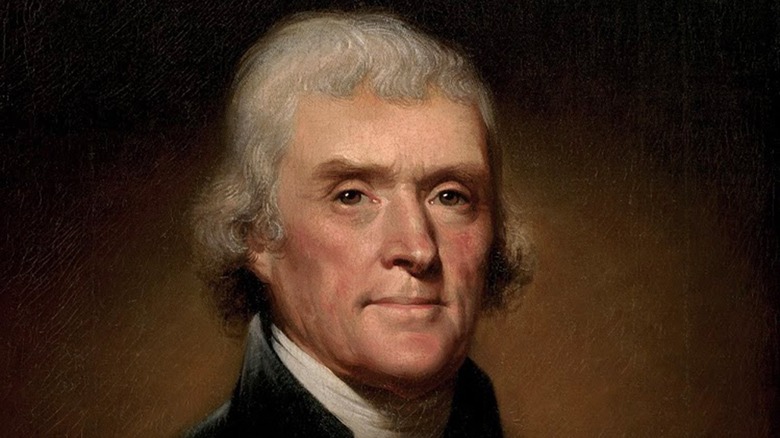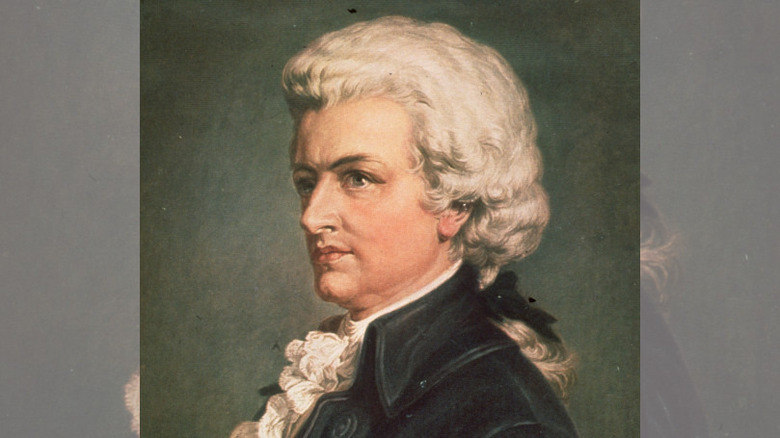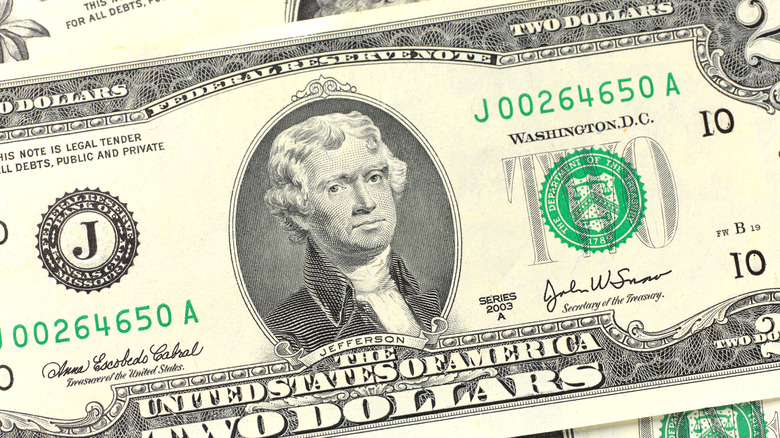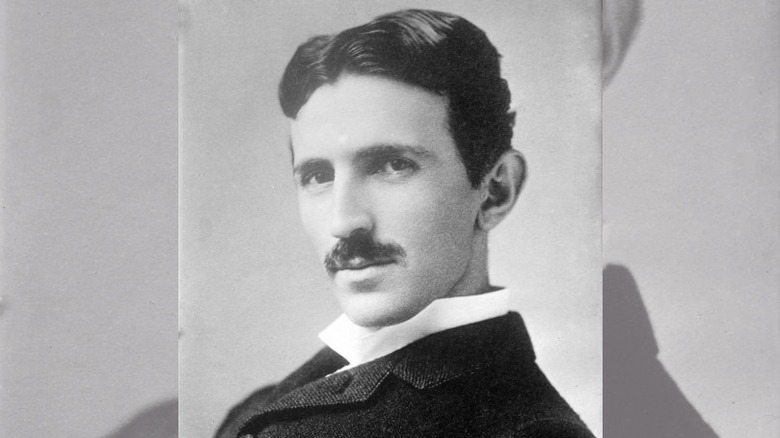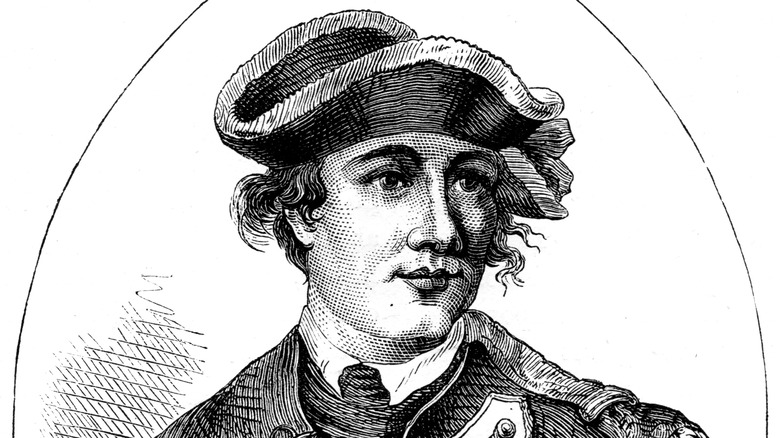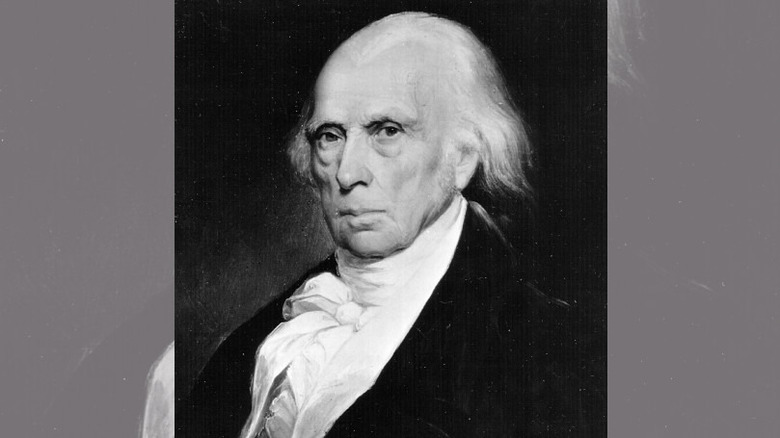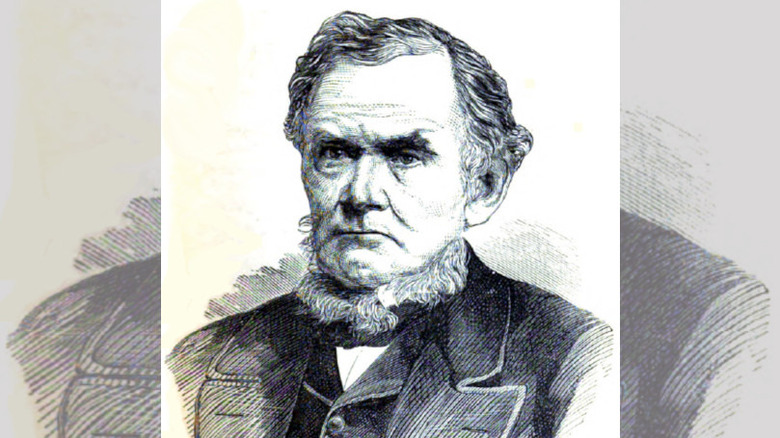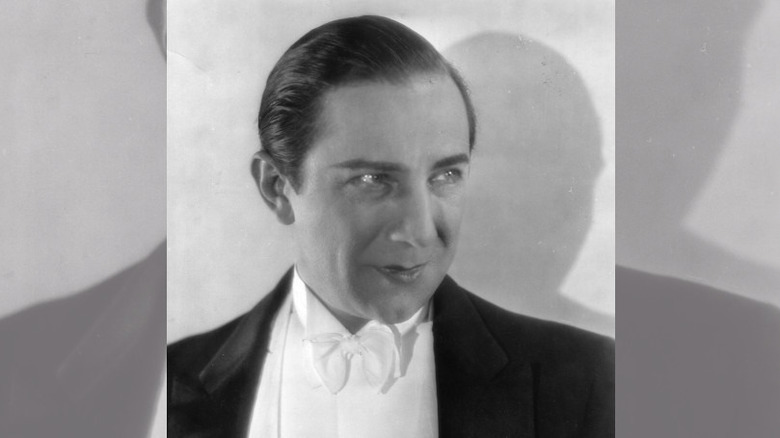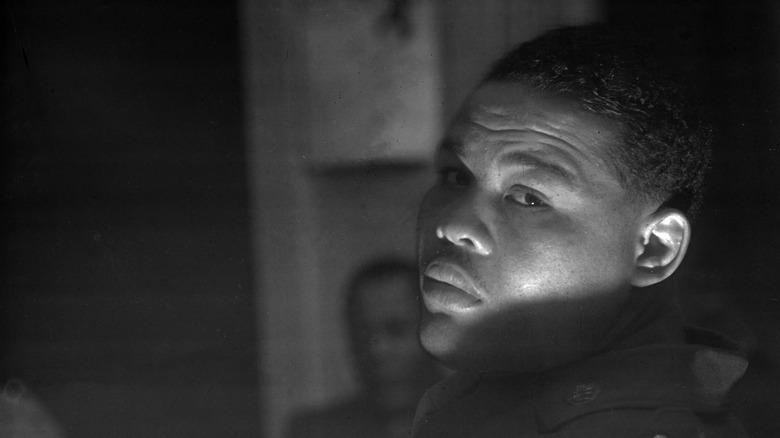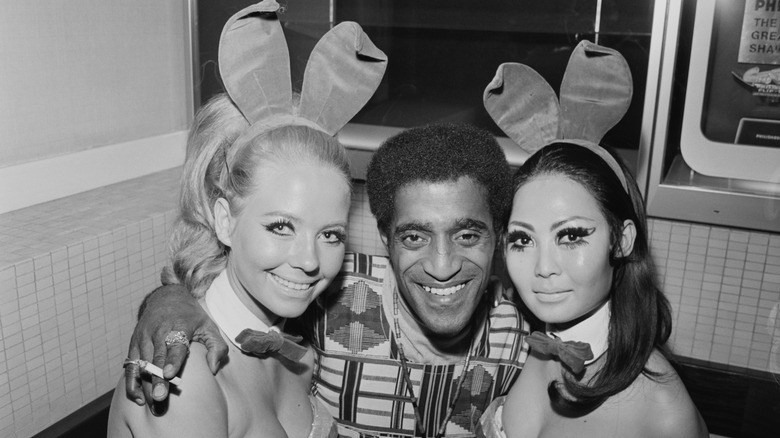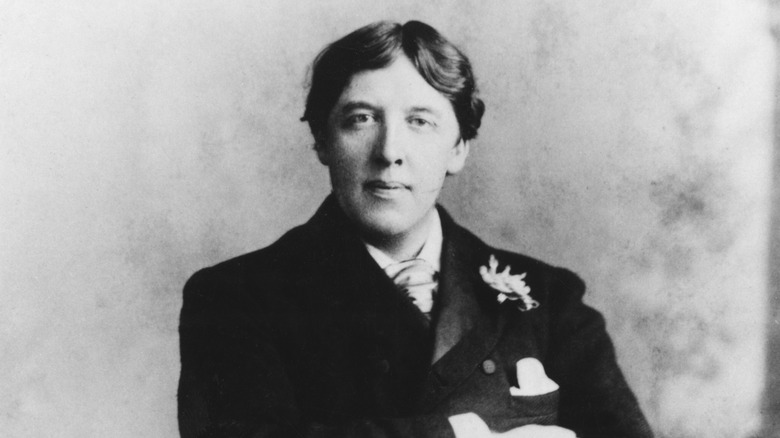Famous Historical Figures Who Lost All Their Money
Money is one of the most mysterious forces in the universe. For most people, acquiring money is a daily task essential to our comfort and survival. But some of us also imagine that we are temporarily embarrassed millionaires who have merely hit a speed bump on our way to generational wealth. In other words, we might be juggling multiple credit card bills today, but someday we'll be rich!
The common concept of "rich" implies permanence, the belief that making a fortune is like climbing a mountain: Once you're at the top you stay there, forever. There's plenty of evidence that this is the case for a lot of folks — the children of rich people also tend to be very rich, and sometimes even richer than their parents. And some wealthy families stretch back generations.
But money has a bad habit of melting away. Inflation nibbles away at it, the tax collector comes calling, and inheritors sue each other into oblivion. Bad investments, poor judgment, and unexpected tragedy all conspire to erode fortunes and sometimes even transform the very rich into the very poor. No matter how much money you might have, it requires careful management to hang onto wealth, and there are plenty of examples throughout history of folks who learned that lesson far too late. Here are some famous historical figures who lost all their money.
Wolfgang Amadeus Mozart: Lifestyle creep
Even if you're not into classical music, you know the name Wolfgang Amadeus Mozart. A child prodigy who went on to become one of the most prolific and brilliant composers in history, Mozart's name remains synonymous with musical genius. And Tom Hulce's performance in the classic 1984 film "Amadeus" remains iconic, presenting Mozart as a childish, haunted man who could barely manage his own affairs.
As noted by Biography, despite the fact that Mozart refused to take a full-time position at court and insisted on a freelance career, he did well for himself. It's estimated that he earned more than 10,000 florins annually from his concerts and music lessons at a time when most people in 18th century Vienna earned about 25 florins and even the comfortably rich might bring in 500.
And yet, as noted by Today, when Mozart died at the young age of 35, he was buried in a pauper's grave because his estate was essentially non-existent. Although Billboard notes that modern historians think he was probably still living in relative comfort thanks to borrowed money and the assistance of friends, there's no doubt about it: Mozart, the most famous musician of his time, died broke and heavily in debt. The cause of his poverty isn't mysterious: Mozart lived well beyond his means, spending lavishly on apartments, schools for his son, and extravagant parties (via Biography).
Thomas Jefferson: The finer things club
Our third president is incredibly important to our national history and the very shape and nature of our government. There's little doubt that Thomas Jefferson was brilliant in many things, with the obvious exception of money. Despite being born into wealth, exploiting enslaved workers, and owning some of the most valuable land in the nascent United States, Thomas Jefferson died flat broke, according to The Saturday Evening Post. Worse, in fact: He died with debts in excess of $100,000, an astounding amount of money at the time.
As explained by History Collection, part of Jefferson's money problems stemmed from his main source of income: His tobacco plantations. They simply never produced the sort of bumper crops that would cover the expenses of the operation, much less produce a profit. But as Forbes notes, the real problem was his own behavior and lack of self-control. It's very possible that Jefferson would be considered a compulsive spender in the modern-day, as his purchase of luxury goods and other expensive items often defied logic. For example, towards the end of his life when he was mired in debt he continued to order crates of expensive French wines despite having no way to pay for them.
He also lavished money on his famous estate, Monticello. Ironically, towards the end of his life, he sought permission to hold a lottery to sell off the estate in a desperate attempt to settle those debts (via History Collection).
Nikola Tesla: No head for business
Nikola Tesla was brilliant. As noted by Forbes, the list of his inventions and scientific breakthroughs is impressively long, including the alternating-current motor, the radio, wireless communication, and fluorescent lights. He held over 700 patents at the time of his death. His former employer and rival, Thomas Edison, was worth more than $12 million when he died in 1931 (more than $200 million today) — but as reported by Smithsonian Magazine, Tesla died in poverty, living in a humble hotel room and spending his days feeding pigeons.
History Collection notes that Tesla did become wealthy as the result of his work, and for a time lived well, dressing in tailored suits, and staying at luxurious hotels. But Tesla had no head for business and made several mistakes that compromised his ability to earn money based on his work. His most serious was selling the rights to some of his most lucrative discoveries to George Westinghouse and J.P. Morgan. When Westinghouse faced financial ruin due to the costly lawsuits it had waged against Edison, Tesla emotionally tore up his royalty agreements, giving up millions of dollars in future revenue out of a sense of loyalty, according to Smithsonian Magazine.
As Tesla aged, he began to struggle to deal with people and may have suffered from undiagnosed mental disorders (via Smithsonian Magazine). He withdrew from society and when he died he left behind a stunning scientific legacy — but absolutely zero money.
Benedict Arnold: Just desserts
The name Benedict Arnold has become synonymous with "traitor," but at the time Arnold's decision to switch sides in the Revolutionary War probably seemed pretty smart. Not only did most people expect the mighty British Empire to eventually crush the upstart and ragged Americans, but Arnold also got paid pretty handsomely for his efforts. As History Collection notes, Arnold received a one-time payment of £6,300 in 1780, equivalent to more than $1 million in today's money. He also received an officer's commission in the British army that came with a good salary, and an annual stipend because he was giving up his property and assets in America.
In other words, Arnold was hella rich. And yet, as noted by Today, when Arnold died in 1801 he was flat broke. History notes that part of Arnold's problem was that once the war ended, no one was very interested in helping him. He was supposed to have received £20,000, but the British government never bothered to pay him the rest, and he was extremely unpopular in London. According to author Bob Dotson in his book "American Story," the reason was simple: bad luck. After the war, Arnold set up a business empire in Canada and was extremely successful for a while. But when the British army left, the economy crashed — taking Arnold's money with it.
Audie Murphy: Gambling debts and bad business deals
Britannica notes that Audie Murphy was one of the most decorated American soldiers to serve in World War II, including being awarded the Congressional Medal of Honor. According to The National WWII Museum, Murphy once jumped onto a burning tank destroyer that could have exploded at any moment, turned the .50 caliber machine gun on the advancing Germans, and single-handedly stopped the attack. And that was just one of his exploits during the war.
After the war, Murphy seemed to live a charmed life. Biography reports that he launched a successful career as a film actor and even starred as himself in the adaptation of his memoir, "To Hell and Back," in 1955. Murphy eventually starred in 44 films. Additionally, he became a very successful songwriter, and History Collection notes, he also, somehow, found the time to become a renowned horse breeder.
Despite his image as a handsome hero, Murphy's life was beset with problems. He developed an addiction to sleeping pills due to his undiagnosed post-traumatic stress disorder (PTSD) as well as a gambling addiction that saw him lose enormous amounts of money. His attempts to make big scores through risky investments backfired, and a disastrous oil investment in Algeria left him deep in the red with the IRS, wiping out the fortune he'd amassed over the years (via History Collection).
James Madison: A slow decline into bankruptcy
No wonder James Madison, our fourth president, once graced the $5,000 bill — he entered office an extremely wealthy man. USA Today estimates his peak net worth at north of $113 million, which makes him one of the wealthiest of our early presidents.
The presidency, however, kicked off a slow financial decline for Madison that led him to eventually lose all of his money. As History Collection explains, like many well-to-do American men in the late 18th and early 19th century, Madison's wealth was tied to his land holdings. He owned a large plantation called Montpelier in Virginia, a business dependent on slavery. Madison's presidency was hectic and time-consuming, with the War of 1812 and Great Britain invading and setting Washington, D.C. on fire, and Madison wasn't able to manage his personal affairs closely. When he left office, his plantation was no longer generating the income he was used to.
As noted by Lynne Cheney in her book "James Madison: A Life Reconsidered," as Madison's income steadily decreased, his extended family — and his extravagant wife, Dolley — drove his expenses up. Madison kept the lights on by borrowing heavily, but shortly before his death the banks cut him off, and when he passed away in 1834, he was broke and in debt. His wife had to sell Montpelier a few years later in order to support herself (via History Collection).
Daniel Drew: Robber Baron justice
The 19th century's Gilded Age in America was a wild time when it came to the wealthy. With no income tax and very few rules regarding the stocks and economic markets, people were free to build fortunes in any way that worked. A prime example is Daniel Drew.
As noted by History Collection, Drew got his start as a saloon keeper, but quickly figured out his first financial hack: He purchased cattle herds in the Midwest and had then driven all the way to New York, where beef sold for much higher prices. From there he built a vast financial empire that eventually saw him a peer of Cornelius Vanderbilt and Jay Gould, with a personal net worth of over $13 million, making him one of the wealthiest men in America.
As reported by The Washington Post, Drew took control of the Erie railroad in 1867 and brought Gould and Jay Fisk on as board members. When the trio learned that Vanderbilt was seeking to buy Erie shares, they flooded Wall Street with fresh shares to prevent him from gaining a majority share. Bribes, injunctions, and brazenly illegal behavior followed as the two sides battled it out. When it was over, Gould and Fisk had seized control of Erie and used similar tactics to ruin Drew. When the country entered a depression in 1873, Drew had lost his entire fortune and was $1 million in debt to boot (via History Collection).
Bela Lugosi: Struggled to find roles
Bela Lugosi remains iconic for his 1931 film portrayal of Dracula (reprising the role from the stage play). To this day, Lugosi's piercing stare and thick Hungarian accent define the old-school cool of the classic Bram Stoker vampire. Lugosi, nearly 50 at the time of his big break, became instantly famous but, as noted by Movieweb, that didn't immediately mean he was rich. Lugosi was only paid $3,500 for his work on "Dracula," and he scrambled for any part he could get after shooting the film ended.
Although he bemoaned his typecasting as a monster (The Richest notes he complained about being regarded as the boogie man), Lugosi worked steadily and should have amassed at least a modest fortune. But Lugosi acquired an addiction to drugs and alcohol. According to Open Culture, Lugosi began using morphine in 1935 because of debilitating leg pain. Author Gregory William Mank reports in his book "Bela Lugosi and Boris Karloff: The Expanded Story of a Haunting Collaboration" that, by the end of his life, Lugosi was drinking at least six bottles of Scotch whiskey a week.
Those habits took their toll, and Lugosi found it increasingly difficult to find work that paid well. As a direct result, when Lugosi died he left behind a glamorous estate worth about $1,900 all tolled, according to author Arthur Lennig in his book "The Immortal Count: The Life and Films of Bela Lugosi."
Joe Louis: Generous to a fault
History reports that in 1949, boxer Joe Louis ended a nearly 12-year reign as the world heavyweight boxing champ, and promptly retired. According to Sportscasting, he had a record of 58-1 and had earned more than $5 million dollars during the course of his boxing career, which was a great deal of money back in those days. But in 1951 Joe Louis came out of retirement for two disastrous fights for one simple reason: He was broke, and he owed the IRS about $1 million in back taxes.
Louis' problem? Generosity combined with poor tax advice. The New York Times reports that the IRS disallowed many of the tax deductions Louis had claimed over the years, insisting he owed more money than he'd actually paid. And the Mackinac Center notes that he regularly gave away the prizes from his fights — two purses worth $65,200 and $45,882 (more than $1 million in today's money) in 1941 alone. When America entered World War II, he dutifully enlisted, giving up those lucrative boxing matches for $21 a month as a private in the army.
Louis began a downward spiral as he aged. He was forced to take humiliating jobs, like being a greeter at Caesars Palace in Las Vegas. He became addicted to drugs and dealt with mental difficulties that may have stemmed from the many head traumas he suffered during his boxing days, and spent his final days confined to a wheelchair after heart surgery (via The New York Times).
Sammy Davis, Jr.: A lost legacy
Sammy Davis, Jr. was one of the most important entertainers of the 20th century. He was a supremely talented dancer and singer who broke racial barriers and achieved superstardom doing it. According to NPR, Davis earned about $50 million over the course of his career, but lost it all and died penniless and deeply in debt.
According to The Los Angeles Times, the culprit was simple financial mismanagement — despite being wealthy, Davis lived consistently beyond his means. He then tried to claw back some of the losses by entering into dubious tax shelters and trying other financial tricks that ultimately didn't work, leaving him in debt to the IRS to the tune of $7 million at the time of his death. In fact, Davis' estate had to sell the rights to his name, image, and recordings in order to settle the debt. To this day, the Davis estate does not control those aspects of his legacy. Things were so dire that his widow, Altovise Davis, attempted to hide a collection of valuable memorabilia from the IRS by renting a storage unit under a false name.
As reported by Today, a lawyer named Albert Murray met Altovise in the 1990s and, moved by her situation, worked for years to settle the Davis estate with the IRS — he was able to regain the rights to Davis' work. But he stopped working with the estate in 2001, and Altovise signed away her rights again, later claiming she'd been tricked.
Oscar Wilde: One costly miscalculation
At the height of his fame, Oscar Wilde was a very wealthy man. As noted by the encyclopedia Britannica, Wilde had established himself as an award-winning poet and writer, had conducted a wildly successful lecture tour of America (followed by a successful tour of England on the subject of his American visit), and worked as a successful magazine editor, novelist, and playwright. According to author Matthew Sturgis in his book "Oscar Wild: A Life," Wilde made a lot of money during his tour of America — amounting to about £1,100, about £140,000, or $180,000 in today's currency.
Wilde lived a comfortably wealthy life, but some decisions he made would prove to be tragic, changing the course of his life. As reported by Biography, Wilde embarked on an affair with Lord Alfred "Bosie" Douglas, son of the Marquess of Queensbury. Queensbury was outraged and publicly referred to Wilde's homosexuality — at the time a crime in Great Britain. Wilde was outraged by this and chose to sue Queensbury for libel. Wilde even assured his lawyers that he was not a homosexual and there was no evidence to the contrary.
That proved to be sadly incorrect. The suit was withdrawn, but Wilde was soon found guilty of "gross indecency" and thrown in jail. The experience broke him and left him financially ruined. He spent his last year relying on charity and died nearly penniless a few years later (via Biography).
Judy Garland: A lifetime of debt
Judy Garland is a Hollywood legend, and she was one of the best-paid performers of all time at one point in her career. According to Vanity Fair, in 1956 Garland was earning $55,000 a week singing in Las Vegas, and as her husband Sid Luft wrote in his book, "Judy and I," Garland earned somewhere between $12 and $15 million in the first years of the 1960s. That's a lot of money, and Garland should have been set for life.
Instead, Garland was deep in debt for most of her life and according to Fox News, once owed the IRS $4 million. The problem was Garland herself, and her husband. According to Town and Country, Garland was a serious alcoholic and drug addict more or less her entire life, and Luft was an inveterate gambler with extremely luxe tastes who regarded his wife as a money-printing machine. Garland and Luft had little business sense and spent the huge amounts of money she earned almost as quickly as it came in (via Vanity Fair).
Towards the end of her tragically short life, Town and Country reported that Garland was forced to agree to a series of solo concerts in order to pay off her tax debts. She was clearly unfit for the stage — erratic, inebriated, and often slurring. When she died in June of 1969 she hadn't made much of a dent in her enormous debts.
